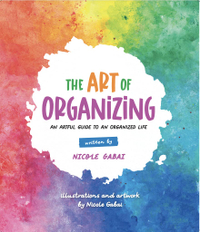Why you should try micro-decluttering – the speedy way to clear out your clutter
This rapid decluttering approach can help even the busiest of us have a clear-out
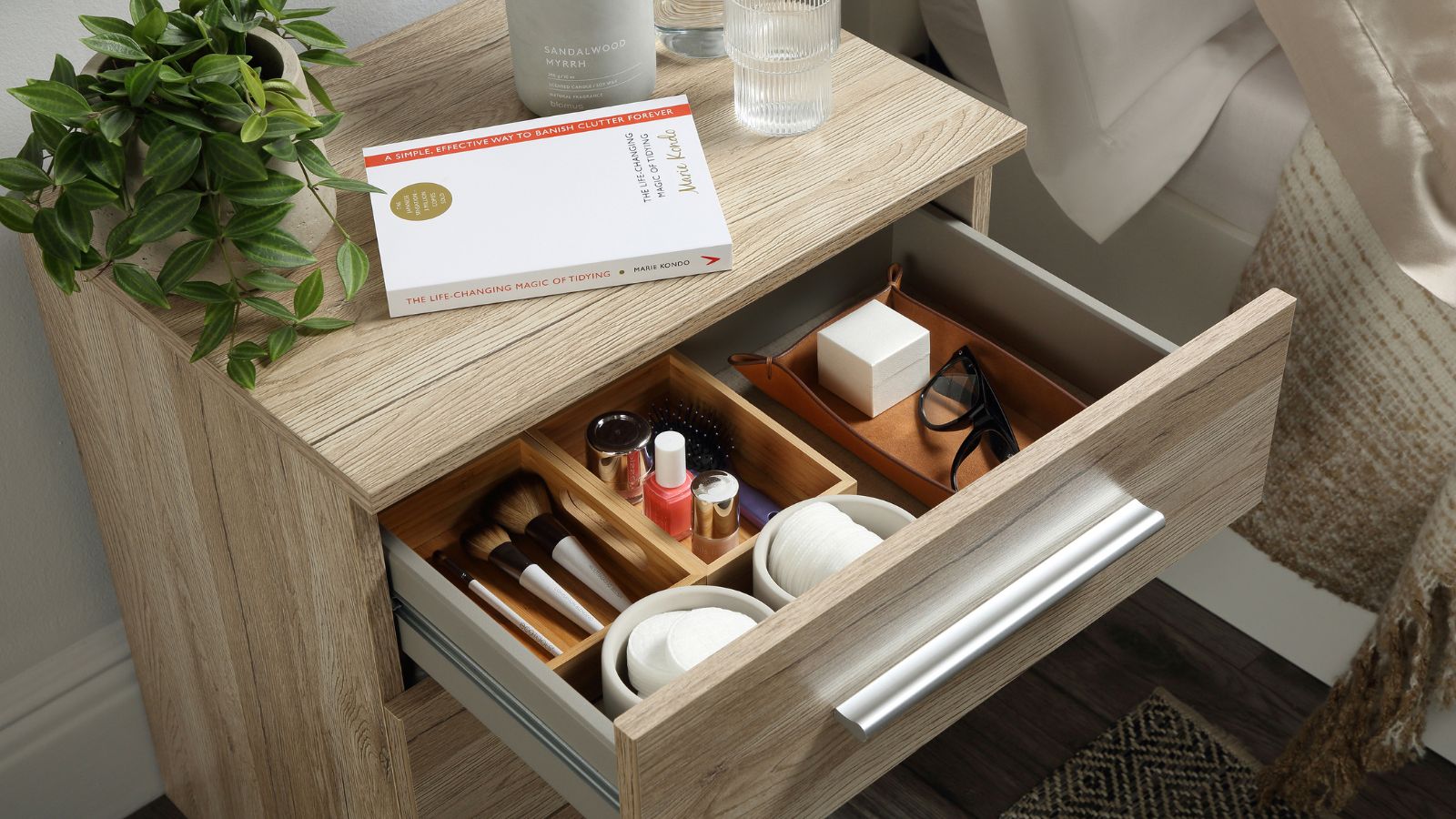

Setting aside time to declutter is great when dealing with large areas of your home, but what if you just need a quick tidy-up and clear-out?
Professional organizers are suggesting you try micro-decluttering, a rapid decluttering tip for addressing common areas of clutter without having to schedule time out of your day or wind up decluttering when you feel overwhelmed.
This is why they love micro-decluttering, and how you can ease this speedy practice into your everyday routine.
Why you should try micro-decluttering
Micro-decluttering is the process of spending just a few spare minutes during your day for micro-resets, to quickly clear out a small area such as decluttering and organizing your bathroom vanity, or decluttering makeup and skincare while you are getting ready in the morning, for instance. You can even use the three-second decluttering rule.
The method has a whole host of benefits, from helping you decide what to declutter to decluttering without making a mess. Most importantly, however, it is perfect for decluttering and cleaning when you are too busy as it can be done at any time, says Eileen Roth, professional organizer and founder of Everything In Its Place.
‘Whenever you look at something and it seems cluttered, and you have the time to do it, you can knock it off of your to-do list.’
There are three easy you can implement the habit:
1. Habit-stack decluttering onto your existing routine
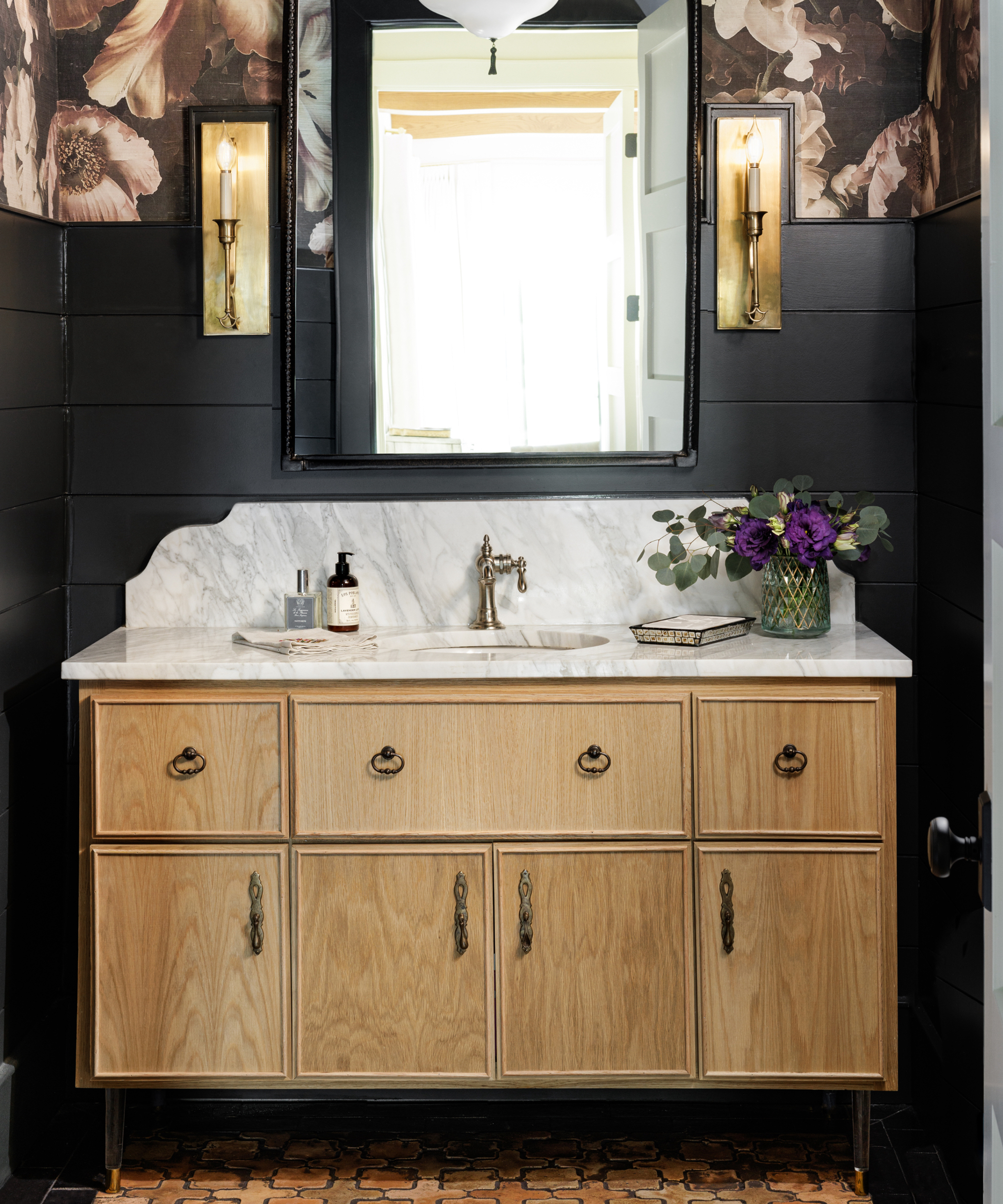
With the micro-decluttering process only taking a few minutes out of your day, it is easy to add it to your existing routine without it impacting your schedule, says Eileen Roth, professional organizer:
‘It's a good technique that's easy to implement at that moment when you know you have too much of something and spot the signs it’s time to declutter your home,’ she explains. If you struggle to open your bathroom drawer for excess products, for instance, you need to have a clear-out.
While some organizers suggest micro-decluttering while you are doing something else (cleaning out your kitchen drawer while cooking, for instance) Eileen suggests doing it immediately after:
‘I don't particularly recommend doing it while doing something else. i.e. Don't brush your teeth and clean out your excess toothbrushes or toothpaste or dental floss. Concentrate on what you are doing and micro-declutter right after it.
‘So if you look at your makeup drawer and see colors you haven't worn in ages because either they are old or you dislike them, like eyes, blush, etc.’

Eileen Roth is an organizing expert, speaker, and author of Organizing For Dummies who has years of experience in organizing both commercial and personal properties, and mentoring in time management.
2. Assess your belongings every time you open storage
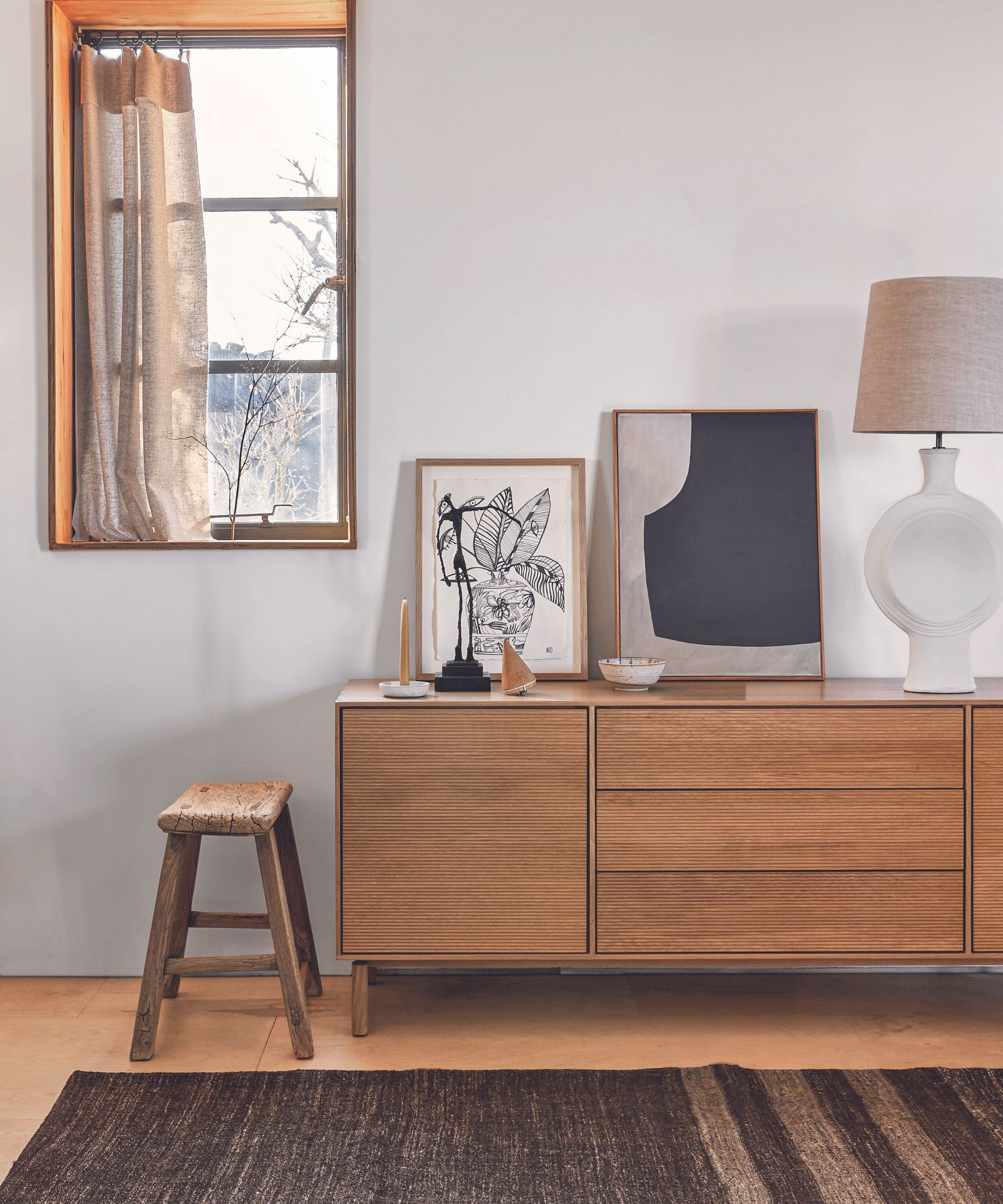
For spaces you don’t use as regularly as your vanity or bedroom dresser, you can follow the decluttering as you go approach and clear out home storage whenever you open it, Susan Santoro, professional organizer at Organized31, recommends:
‘I recommend doing it every time you open a drawer, cabinet, or closet. It starts with training yourself to look for items to declutter, but once you've trained yourself, it becomes second nature.
‘For example, when you bypass that old pair of socks you don't like for a different pair, remove the one you don't like at the same time you pull out the pair you want. When you open the fridge to grab the ketchup bottle, look at the date on the bottle next to it. It takes you less than a second more time.
‘If you do that every time you choose a pair of socks or a condiment, in a week or two, you'll have decluttered that category of items. This works for every area. It allows you to declutter as you go through your normal routine rather than a marathon decluttering session.’

A veteran, parent educator, and mother of three, Susan is also a certified organizational specialist helping people to declutter and downsize, and organize homes in tough times.
3. Spend less than 10 minutes re-establishing order
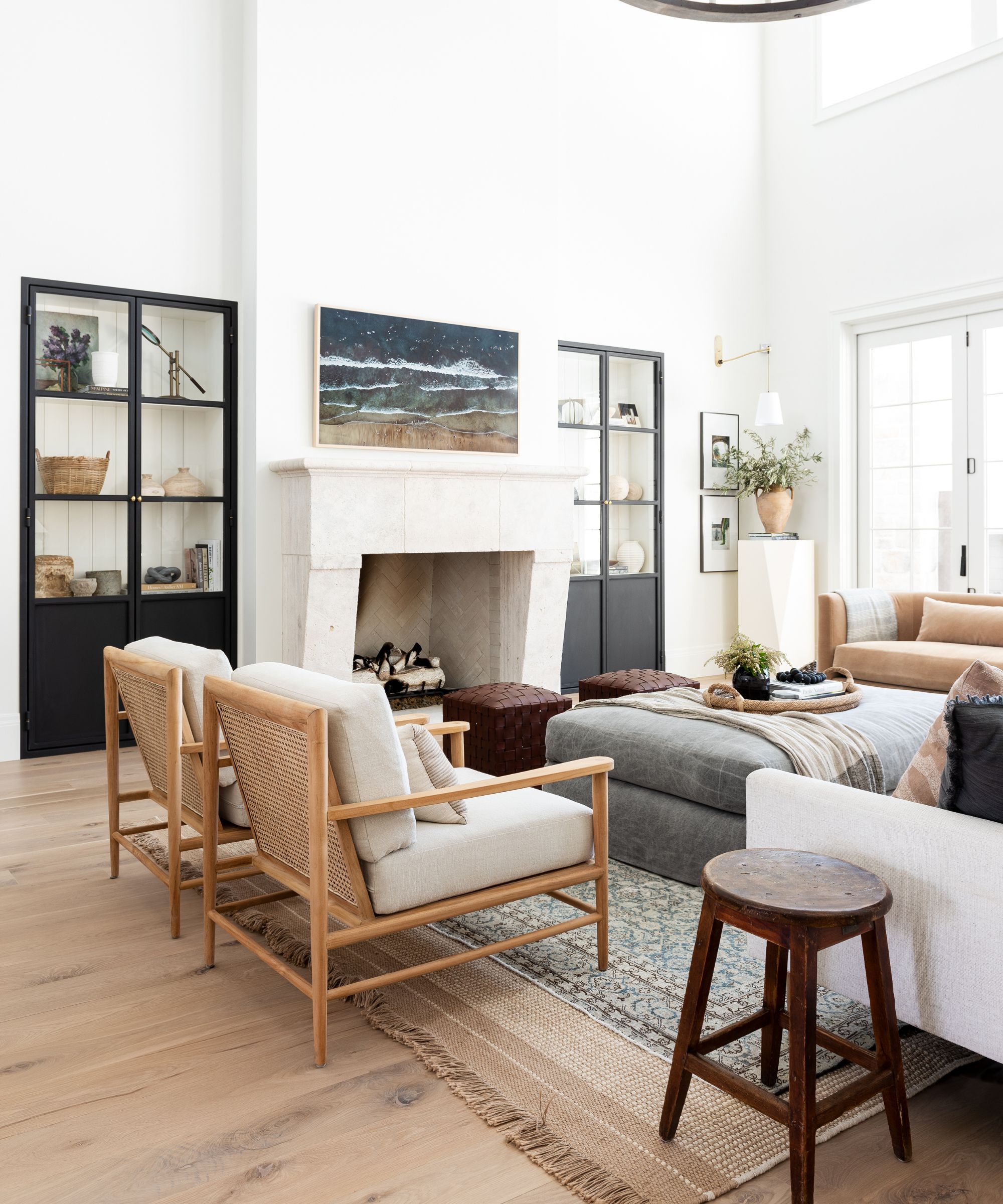
If adding micro-decluttering to your routine isn’t for you, then it is possible to relegate all of your tasks to one short burst elsewhere in your day – be it when you first get up, or before you go to bed, assures Nicole Gabai, certified professional virtual organizer and founder of B. Organized. It is important to remember that this is micro-decluttering, and not a full home reset, so try to keep it under ten minutes at most, she says.
‘Put things away and in their "home" at the end of every day. By not letting things pile up it's easy to stay on top of organization,’ she adds.

Nicole founded B. Organized over 20 years ago and is a Golden Circle member of NAPO – the National Association of Productivity & Organizing Professionals. She's also the author of the best-selling book The Art of Organization, available at Amazon.
The Art of Organizing | View at Amazon
In this unique book using the color wheel as its guide, artist and professional organizer Nicole Gabai presents her six-step organizing system, using delightful illustrations and colorful reference points to keep you inspired every step of the way in your organizing project.
FAQs
What are the main sources of microclutter?
Microclutter is those small, individual items that we might not think anything of, but build up and make our lives more difficult and our homes less organized. Some common examples of micro clutter are plastic bags and canvas totes, gift cards left in drawers, free samples and tester products you never finish, old cords and tech you didn't get rid of, and even loose change you haven't put in your wallet.
What is the one-touch rule for clutter?
The one-touch clutter rule involves only touching an item once between finishing using it and putting it away. For instance, as you take off your coat when you get home, you have to hang it up immediately and not put it down on the back of a chair. Touching each item once means you spend less time tidying up after yourself and have more time to relax – as well as a more organized space.
To make micro-decluttering more efficient, you need to have some idea of what to do with the items you declutter so you are not left hanging with items, or worse, piling them up in one spot to ‘deal with later’. Set yourself some rules – anything that has been partially used or expired should go in the trash and anything you don't love but is in good condition can be put in a donation basket, for example.
Sign up to the Homes & Gardens newsletter
Design expertise in your inbox – from inspiring decorating ideas and beautiful celebrity homes to practical gardening advice and shopping round-ups.

Chiana has been at Homes & Gardens for two years and is our resident 'queen' of non-toxic living. She spends most of her time producing content for the Solved section of the website, helping readers get the most out of their homes through clever decluttering, cleaning, and tidying tips. She was named one of Fixr's top home improvement journalists in 2024.
-
 ‘It leads to more headaches than it's worth’ – 4 reasons you should never store things in your oven, including fire risks and serious illness
‘It leads to more headaches than it's worth’ – 4 reasons you should never store things in your oven, including fire risks and serious illnessYour oven is for cooking, and cooking only, experts urge
By Chiana Dickson
-
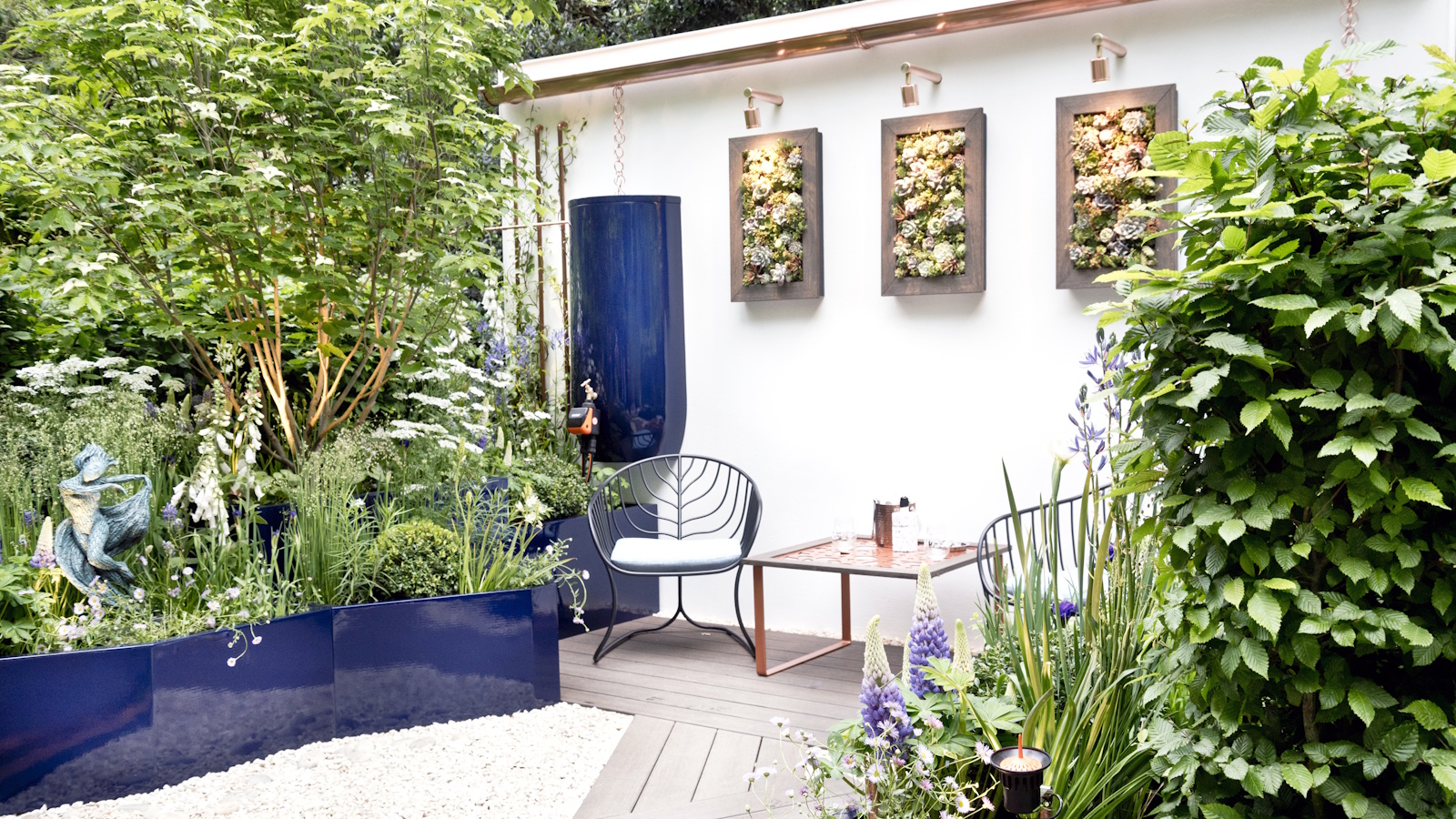 Urban gardening ideas – 7 creative ways to grow in small spaces, balconies, containers, indoors, and more
Urban gardening ideas – 7 creative ways to grow in small spaces, balconies, containers, indoors, and moreMake the most of your space with these innovative ways to garden
By Tenielle Jordison
